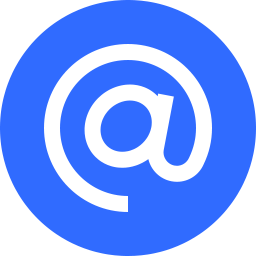Get in Touch! / FAQ
Like I said at the start, if you, your product, or your organization are going to be judged by your writing then it needs to be professionally edited. That's true even for experienced writers. There's no substitute, no shortcut that doesn't cost you in the long run. So get in touch with me, and let's see what we can do together. I strive to answer all inquiries within 24 hours—usually a lot less.
Free Consultation & Editing Sample
I provide all prospective clients with a free consultation (up to an hour's worth) to help determine whether I am right for the job. This includes some complimentary reading (up to 1,000 words or thereabouts). Get in touch with me and we'll talk about your project, goals, and deadlines; I will answer any questions you have.
If you're considering contracting for my services, and have a project worth at least $50, I also offer a free sample copyedit of your work, up to 300 words.
Frequently Asked Questions
Q: What does your editing look like?
A: I perform in-line edits using Track Changes (unless you prefer some other arrangement), with supplementary margin comments as needed. I can work with all common electronic file formats from Microsoft Office and its open-source counterparts.
Q: Should I go with copyediting, content editing, consulting, or some combination thereof?
A: Everything needs to be copyedited, if not by me then someone else. Content editing is for when you've already written something and it isn't living up to its potential or just doesn't have the punch you want. Virtually all large projects, as well as many kinds of smaller ones, benefit from the collaboration of a content editor. My consulting service is for when you don't have something to edit yet: If you're having trouble beginning a project or putting your thoughts together in the first place, then it's time for a consultation. Consultation also helps during a project when you need an "ideas person" more so than a editor per se, or when there's work to be done outside the word count of a project. I accompany many of my clients all the way through the process: from the developmental consultation at the start, to the primary phase of content editing (sometimes with supplementary consultation), to the copyediting phase at the end.
Q: What should I do if I'm on a tight budget and can't afford the works?
A: It depends on your strengths and weaknesses as a writer, as well as the project goals. I would probably want to see a sample of your work during the initial free consultation. As a general default, I would probably recommend you go with copyediting. Copyediting is a matter of correcting visible errors; its absence is easy to see. And good copyeditors are hard to come by. With that said, sometimes the content editing or consultation are going to be more valuable. If you're on a tight budget, let me know and I'll make a recommendation.
Q: Do you charge a down payment?
A: For new clients, I ask that 50% of the first invoice be paid in advance. See the Rates page for more.
Q: Can I send you an updated version of the work after you've started editing it?
A: Yes, but I reserve the right to charge for any work I've already done.
Q: Are you proficient in a given style manual?
A: I am proficient in AP Style. I'm a big reader of newspapers and in a past life I even worked at my college's student newspaper and later at The Seattle Times. I am reasonably proficient in Chicago and MLA. Most of the time I'll be able to meet your style needs just fine, but for top-drawer style guide compliance you're probably better off with a specializing editor.
Q: Will you sign an NDA?
A: Yes. Whether you've got a video game story script or have invented transgalactic warp drive and need the user manual edited, I'm happy to sign a non-disclosure agreement.
Q: Will you do my assignment for me? A: If you're a student, and the assignment is for credit, no. I will edit it, but you have to write it.
Q: Why is editing important?
A: I think most people think of editing as an optional step or an afterthought. It's not, though. Like I said at the beginning, if you or your organization are going to be judged by your writing, then your income or advancement are on the line, and a lot of good ideas fail because they aren't presented well. Not everything needs to be edited. But most work—and virtually all commercial work—does, and when clients see the difference between their original work and the edited version that I hand over, they understand why. It's like flossing your teeth: Sure, you can skip it, but when you do floss it's amazing how much crud comes out.
Q: Why does editing cost so much?
A: The cost of editing often surprises people. I think this is what spurs the cottage industry of incompetent editors, who can make a few easy bucks from home because there are enough people out there who don't understand what good editing looks like. (Buyer beware! If someone offers to edit your novel for $200, run away!) The rates editors charge reflect an equilibrium between the costs of doing business on our end and the value proposition to our clients. It's hard to put a dollar sign on the potential value of a more professional piece of work over a less professional one, but a good way to think about it is to imagine the value you stand to gain if the writing accomplishes what it's supposed to: product sales, article publication in a research journal, public awareness, a better grade on a paper, etc. It turns out that, most of the time, it's worth it.
Q: Are your rates on the expensive end of things?
A: My rates are fairly typical. Upward pressure on my rates comes from the fact that I do a lot of high-end analytical work, which is the best kind of editing you can get. Downward pressure on my rates comes from the fact that I don't have a lot of name recognition or a job with a larger organization. On the whole it comes out in the wash, although, because I charge by the word rather than the hour, the more editing your work needs, the better the deal you're getting. If you'd like, you can compare my rates to the Editorial Freelancers Association guidelines.
Q: Will you do an hourly rate or a project rate?
A: I generally avoid project rates, because project rates usually burn either the client or the editor; per-word rates are much more accurate. I will do hourly rates by request—this comes up with clients who have to report contractor expenses in hourly form—but you will always save money by going with my per-word rates. That's because "high-end analytical work" also entails "slow." I am a methodical and meticulous person; that's one of the reasons I enjoy editing to begin with; but it means I work slowly, and that's not good when you're paying by the hour.
Q: Do you offer refunds?
A: I do not offer refunds. However, I will gladly redo a piece of work at no extra charge if you have specific complaints about it. I always try to make things right when a client has a problem, but in practice it rarely comes up because my track record of client satisfaction is very high.
Q: Aren't generalists bad? How can you be an expert in everything?
A: It's the Internet! Muah ha hah!
Actually, I'm not an expert in everything. I am an expert in English, however. I also have editing experience or other experience in many fields, and am good at generalizing my skills. For instance, almost half my clientele is in academia, where I edit works outside my expertise all the time, from statistics to anthropology, because I understand enough about all academic fields to be able to at least follow along. In practice, I am a strong enough generalist that I don't gain anything by specializing.
Q: What's your educational background?
A: I studied aerospace engineering at the University of Washington, but my real strength as an editor comes from my lifetime of writing and reading experience, my fifteen-plus years of editing experience, and my broad curiosity spanning many walks of life.
Q: Does good editing mean being the grammar police?
A: Okay, I made this one up! It's an important question, though. I can play grammar cop anytime; I possess all the necessary skills. And, when I was a teenager, I went through an insufferable period of correcting everybody. However, I've long since learned that good writing is not about absolute adherence to a set of rules from the 1950s. You can begin a sentence with a conjunction, end it with a preposition, use sentence fragments for effect, pepper your text with emoticons, and even double or triple up on exclamation points now and then!!! My job as an editor isn't to make your grammar and syntax flawless; it's to make your writing shine for the people who are going to read it.
Q: Why are you an editor?
A: I'm also a creative writer, and it's hard to make a living from that. I love the English language and I enjoy working with text. I also happen to be one of the best around in English mastery. Editing is a natural choice.




